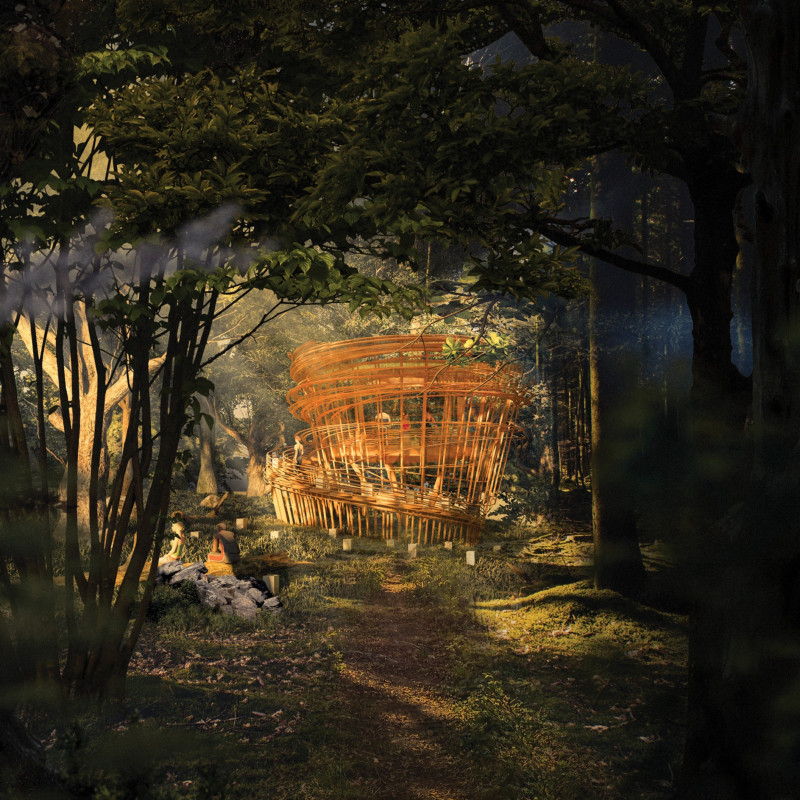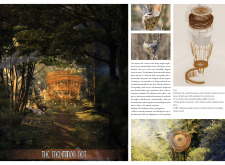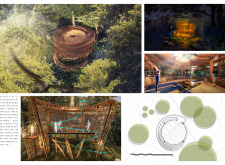5 key facts about this project
At its core, The Meditation Nest is designed to provide a tranquil space for various activities such as yoga, meditation, and community gatherings. The architectural form is characterized by fluid, spiraling lines that mimic natural growth patterns, encouraging users to experience a sense of being enveloped and protected by their environment. This organic shape promotes movement through the space in a manner that allows for both individual contemplation and communal interaction.
One of the defining features of the design is its materiality, incorporating sustainable and locally sourced materials that respect the environment. The primary use of local timber not only supports the surrounding ecosystem but also creates a warm and inviting atmosphere within the structure. Large glass panels play a vital role in achieving a strong connection to the outdoors, allowing light to pour into the interior and fostering an uplifting ambience. This thoughtful use of glass also provides users with unobstructed views of the surrounding landscape, enhancing the overall experience and reinforcing the project's commitment to biophilic design principles.
The spatial organization of The Meditation Nest reflects a non-linear approach that promotes fluidity and adaptability. Central to the structure is a flexible activity space that can be used for various purposes, allowing it to cater to the needs of diverse user groups. This adaptability is further enhanced by a circular void in the roof, which serves to illuminate the interior while creating a visual dialogue with the sky above. The presence of natural ventilation systems and strategically placed openings minimizes reliance on mechanical systems, effectively promoting a sustainable approach to building design.
The raised platform within the structure adds to its ecological sensibility by reducing the need for extensive excavation while also providing stability and an elevated perspective of the surrounding environment. The pathways leading into and throughout the building are designed to evoke a sense of natural movement, guiding users through the space in a way that feels intuitive and serene.
What distinguishes The Meditation Nest is its deliberate response to the elements and its sensitivity to the user experience. This project prioritizes a harmonious relationship between architecture and its surroundings, demonstrating a commitment to environmental sustainability while promoting mental well-being. The careful selection of shapes and materials creates a space where individuals can reconnect with themselves and the environment.
For those interested in a deeper exploration of The Meditation Nest, an examination of the architectural plans, architectural sections, and architectural designs offers valuable insights into the design process and the thoughtful considerations that underpin the project. This exploration can illuminate the unique architectural ideas that drive the vision of The Meditation Nest as a serene retreat amidst the beauty of nature.
























